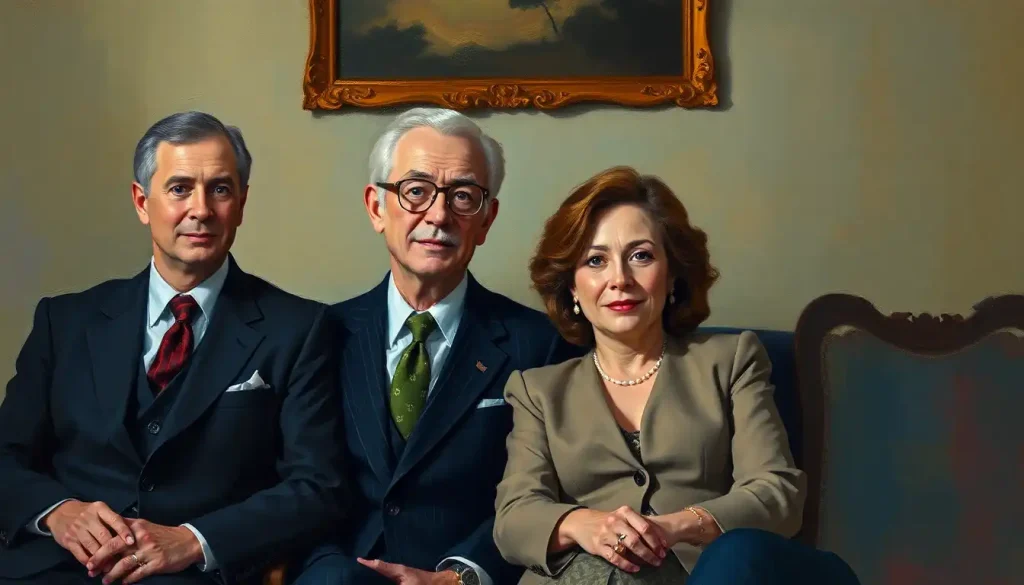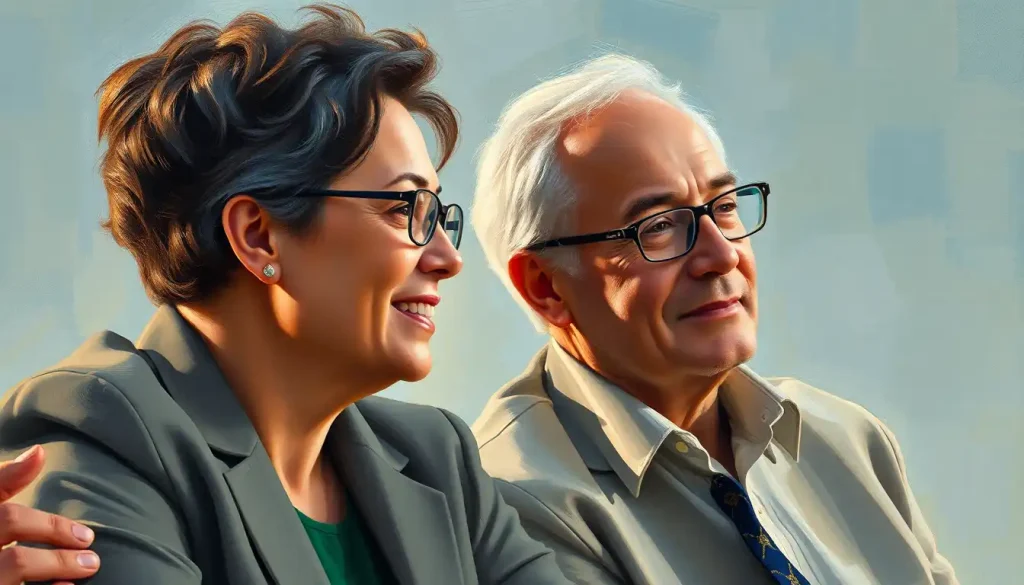Your tweets, photos, music, and digital masterpieces could vanish into the virtual void without proper legal protection – a nightmare scenario that’s pushing creative professionals to rethink how they safeguard their digital legacy. In today’s interconnected world, where our lives are increasingly intertwined with the digital realm, the concept of estate planning has evolved far beyond traditional assets like real estate and physical possessions. Enter the realm of media estate planning, a crucial yet often overlooked aspect of securing one’s creative output and online presence for future generations.
Media estate planning is the process of organizing, managing, and protecting digital assets and intellectual property rights for individuals in the media and creative industries. This specialized form of estate planning addresses the unique challenges faced by artists, musicians, writers, photographers, and other content creators in the digital age. As our online footprints grow larger and more complex, the need for a Media PA Estate Planning Attorney: Safeguarding Your Legacy and Future becomes increasingly apparent.
But what exactly does a media estate planning lawyer do? These legal professionals are well-versed in the intricacies of intellectual property law, digital asset management, and estate planning. They help creative professionals navigate the complex landscape of online platforms, copyright laws, and digital rights management to ensure that their work remains protected and accessible long after they’re gone.
Why Media Professionals Need Specialized Estate Planning
The digital revolution has transformed the way we create, distribute, and consume media. For creative professionals, this shift has brought both opportunities and challenges. While the internet has opened up new avenues for sharing and monetizing creative work, it has also made it more vulnerable to unauthorized use, theft, and loss.
Traditional estate planning often falls short when it comes to addressing the unique needs of media professionals. A standard will or trust may not account for the complexities of managing digital assets, transferring intellectual property rights, or dealing with the terms of service agreements of various online platforms. This is where specialized media estate planning comes into play, offering tailored solutions to protect and preserve a creator’s digital legacy.
Digital Assets and Intellectual Property in Media Estate Planning
When we think of digital assets in the media industry, the scope is vast and varied. These can include:
1. Social media accounts and content
2. Digital artwork and photography
3. Music files and streaming rights
4. E-books and online publications
5. Video content and YouTube channels
6. Domain names and websites
7. Cryptocurrency and NFTs
Each of these assets comes with its own set of intellectual property rights, which form a crucial part of a media professional’s estate. Copyright, trademarks, and licensing agreements are just a few examples of the legal protections that need to be considered in media estate planning.
However, managing and transferring these digital assets presents unique challenges. Unlike physical assets, digital content often exists in multiple locations, protected by passwords and governed by complex terms of service agreements. A Digital Property Estate Planning Lawyers: Safeguarding Your Online Legacy can help navigate these hurdles, ensuring that your digital assets are properly inventoried, protected, and transferable to your chosen beneficiaries.
Key Components of a Media Estate Plan
Creating a comprehensive media estate plan involves several crucial steps. Let’s break down the essential components:
1. Inventory of Digital Assets and Accounts
The first step in media estate planning is to create a detailed inventory of all your digital assets and online accounts. This includes everything from social media profiles to cloud storage accounts, online banking information, and digital storefronts where you sell your work. It’s important to keep this inventory up-to-date and store it securely, as it will serve as a roadmap for your digital executor.
2. Designation of Digital Executors
A digital executor is someone you trust to manage your online presence and digital assets after your death. This person should be tech-savvy and understand the value of your digital legacy. They’ll be responsible for carrying out your wishes regarding your online accounts, managing your digital assets, and ensuring that your intellectual property is protected.
3. Licensing and Royalty Considerations
For many media professionals, ongoing royalties and licensing agreements form a significant part of their estate. Your media estate plan should address how these income streams will be managed and distributed after your death. This may involve setting up trusts or other legal structures to ensure that your beneficiaries continue to benefit from your creative work.
4. Social Media Account Management
Social media accounts are often overlooked in traditional estate planning, but they can be a valuable part of a media professional’s legacy. Your estate plan should outline your wishes for these accounts – whether you want them to be memorialized, deleted, or managed by a designated person. It’s also important to consider the terms of service for each platform, as they may have specific policies regarding deceased users’ accounts.
Legal Considerations for Media Estate Planning
Navigating the legal landscape of media estate planning can be complex, especially when it comes to copyright laws and posthumous rights. In the United States, copyright protection extends for 70 years after the creator’s death. This means that your heirs will continue to benefit from your work long after you’re gone – but only if your estate plan is properly structured.
Terms of service agreements for digital platforms add another layer of complexity to media estate planning. Many online services have specific policies regarding account ownership and transferability after death. A skilled media estate planning lawyer can help you navigate these agreements and develop strategies to ensure that your digital assets remain accessible to your heirs.
For media professionals with a global audience, international law implications must also be considered. Copyright laws and digital asset regulations vary from country to country, and your estate plan should account for these differences to provide comprehensive protection for your work worldwide.
Working with a Media Estate Planning Lawyer
When seeking a media estate planning attorney, look for someone with a deep understanding of both estate law and the unique challenges faced by creative professionals in the digital age. They should be well-versed in intellectual property law, digital asset management, and the ever-evolving landscape of online platforms and technologies.
The process of creating a media estate plan typically involves several steps:
1. Initial consultation to discuss your goals and assets
2. Comprehensive inventory of digital assets and accounts
3. Review of existing copyright and licensing agreements
4. Development of strategies for asset protection and transfer
5. Creation of legal documents, including wills, trusts, and power of attorney
6. Implementation of the plan and regular reviews to keep it up-to-date
While the costs of professional legal assistance may seem daunting, the benefits far outweigh the investment. A well-crafted media estate plan can save your heirs significant time, money, and stress while ensuring that your creative legacy is protected and preserved for future generations.
Future-Proofing Your Media Estate Plan
In the rapidly evolving digital landscape, future-proofing your media estate plan is crucial. This involves regularly reviewing and updating your plan to account for new technologies, platforms, and types of digital assets. For example, the rise of non-fungible tokens (NFTs) has created new considerations for digital artists and collectors that may not have been relevant just a few years ago.
Addressing emerging digital assets and platforms is an ongoing process. Stay informed about new developments in the digital realm and consider how they might impact your creative work and legacy. This might involve exploring new ways to monetize your content, protect your intellectual property, or engage with your audience.
Regular review and updates of your media estate plan are essential. Set a schedule to revisit your plan at least once a year, or more frequently if you experience significant life changes or acquire new digital assets. This ensures that your plan remains relevant and effective in protecting your digital legacy.
Securing Your Digital Legacy: Steps to Take Now
As we’ve explored the intricate world of media estate planning, it’s clear that protecting your digital legacy requires thoughtful preparation and expert guidance. Here are some key steps you can take to start securing your media assets for the future:
1. Create a comprehensive inventory of your digital assets and online accounts.
2. Research and understand the terms of service for the digital platforms you use.
3. Designate a tech-savvy digital executor who understands the value of your work.
4. Consult with a Digital Legacy Planning: Safeguarding Your Online Life for Future Generations specialist to create a tailored estate plan.
5. Regularly update your plan to account for new assets and changing technologies.
6. Consider setting up trusts or other legal structures to manage ongoing royalties and licensing agreements.
7. Educate your family and beneficiaries about the importance of your digital legacy.
By taking these steps, you’re not just protecting your own work – you’re ensuring that your creative contributions continue to inspire and benefit future generations. In a world where our digital footprints often outlive us, thoughtful media estate planning is more than just legal foresight – it’s a testament to the enduring power of creativity and innovation.
As we navigate the ever-changing landscape of digital media and online platforms, the importance of media estate planning will only continue to grow. By working with specialized legal professionals and staying informed about emerging technologies, creative professionals can safeguard their digital legacies and ensure that their work continues to make an impact long into the future.
Whether you’re a budding artist just starting to build your online presence or an established media professional with a vast digital empire, taking the time to create a comprehensive media estate plan is an investment in your creative legacy. It’s a way to ensure that your voice continues to be heard, your vision continues to inspire, and your work continues to touch lives – even when you’re no longer here to manage it yourself.
In the end, media estate planning is about more than just protecting assets – it’s about preserving the stories, ideas, and creations that make us who we are. By taking control of your digital legacy today, you’re writing the next chapter in your creative journey – one that extends far beyond your own lifetime.
References:
1. Carroll, E., & Romano, J. (2010). Your Digital Afterlife: When Facebook, Flickr and Twitter Are Your Estate, What’s Your Legacy? New Riders.
2. Lamm, J. D., et al. (2014). Planning for Digital Assets. Probate and Property, 28(1), 58-62.
3. Cahn, N. (2014). Probate Law Meets the Digital Age. Vanderbilt Law Review, 67(6), 1697-1727.
4. Perrone, M. (2012). What Happens When We Die: Estate Planning of Digital Assets. CommLaw Conspectus, 21, 185.
5. Pinch, R. (2014). Protecting Digital Assets after Death: Issues to Consider in Planning for Your Digital Estate. Wayne Law Review, 60, 545.
6. American Bar Association. (2013). Planning for Digital Assets.
URL: https://www.americanbar.org/groups/real_property_trust_estate/resources/estate_planning/planning_for_digital_assets/
7. Uniform Law Commission. (2015). Revised Uniform Fiduciary Access to Digital Assets Act.
URL: https://www.uniformlaws.org/committees/community-home?CommunityKey=f7237fc4-74c2-4728-81c6-b39a91ecdf22
8. Nelson, S. (2019). The Digital Dilemma: Estate Planning for Cryptocurrency and Other Digital Assets. Trust & Estates Magazine.
9. Hopkins, J. P. (2013). Afterlife in the Cloud: Managing a Digital Estate. Hastings Science and Technology Law Journal, 5(2), 209-244.
10. Beyer, G. W., & Cahn, N. (2013). Digital Planning: The Future of Elder Law. National Academy of Elder Law Attorneys Journal, 9(1), 135-155.












Would you like to add any comments? (optional)